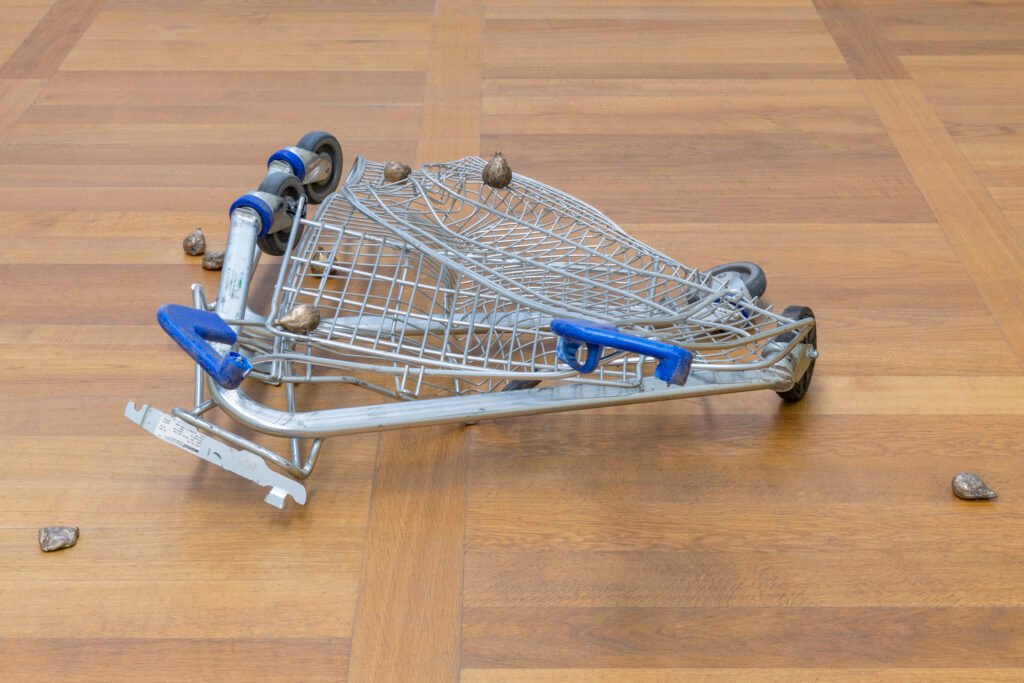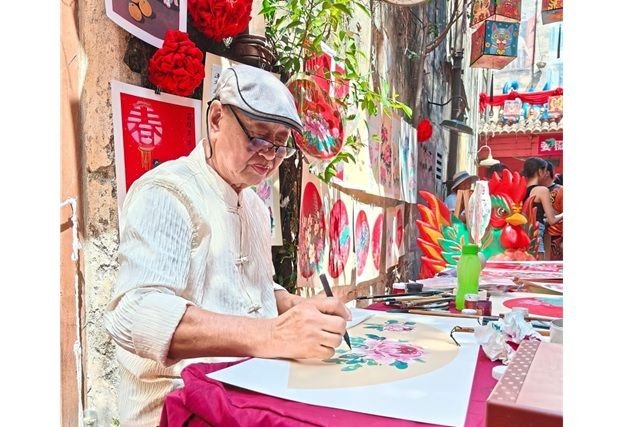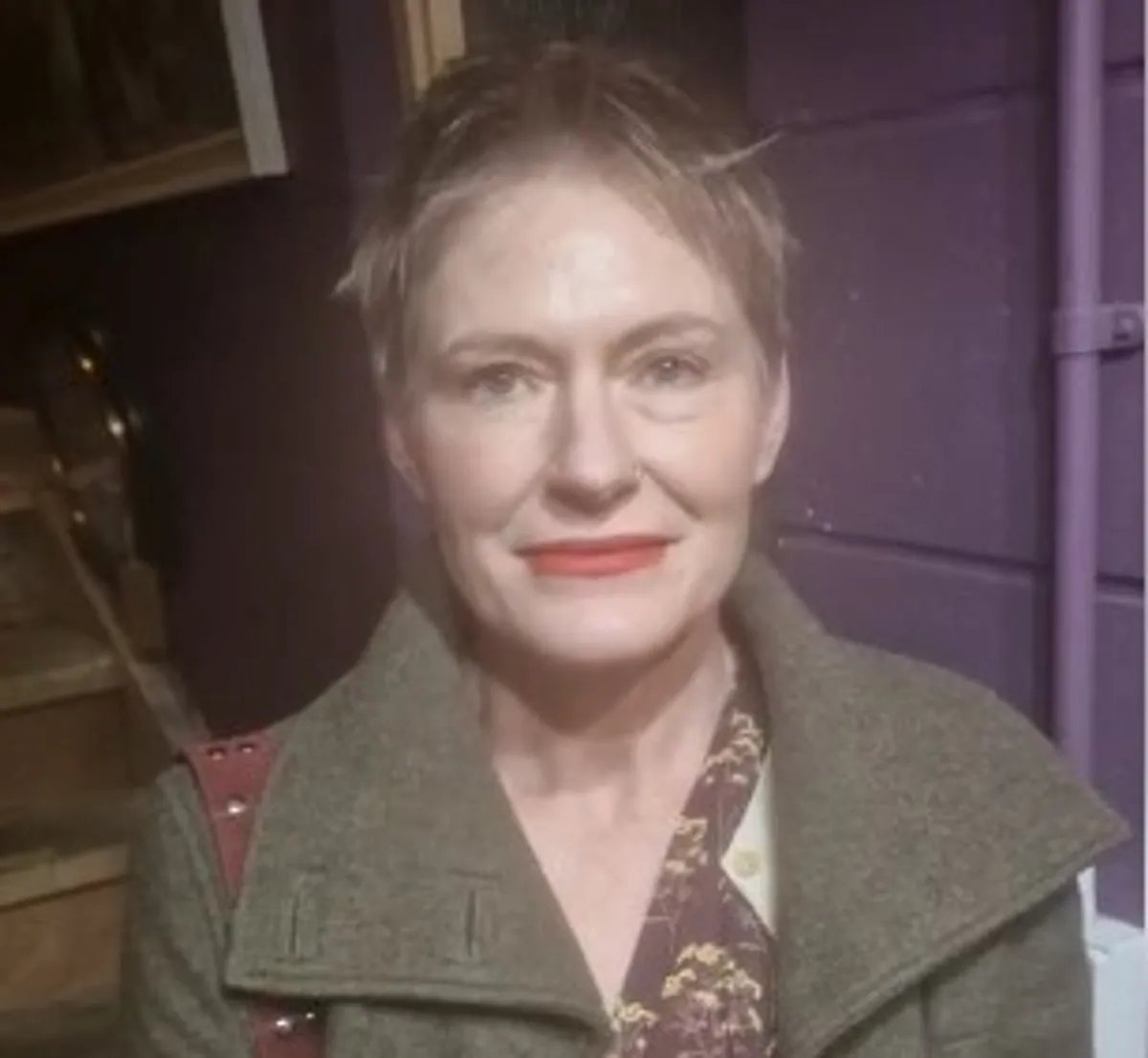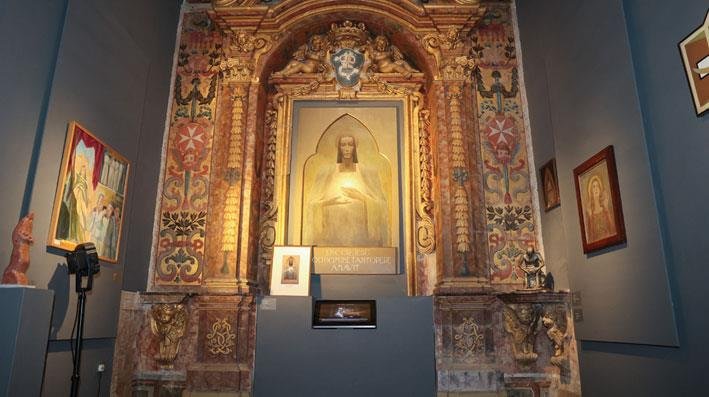In See, See, Sea at Tate Britain, Huang questions the processes of production, trade and consumption underlying the industries of both art and food
Jam jars, soft drink bottles, aluminium cans – food containers that are often discarded after being emptied – punctuate sculptures by London-based artist Steph Huang. Between found materials, handcrafted elements and a film, Huang questions the processes of production, trade and consumption underlying the industries of both art and food.
Spotted across the air-conditioned, wooden-floored gallery, and on a low curved platform swelling out from one wall, jars that used to hold fruit conserves and gherkins join an elegant composition of handblown glass spheres, slender metal stands and dainty details, such as the glass cherry of Cherry Bakewell Sundae (all works but one 2024) and the bronze-cast scallop shell of Water Puddle. Elsewhere, two stacks of retired seafood crates, one standing in the gallery, the other hanging on a wall, all marked as from Brixham Harbour, form a harmonious minimalist visual rhythm of colours, forms and textures. Although integrated into the exhibition’s landscape of pastel greens and blues, the found objects stick out, reminding visitors of what is rarely seen in a stylish restaurant or a hushed art gallery: evidence of waste and labour.
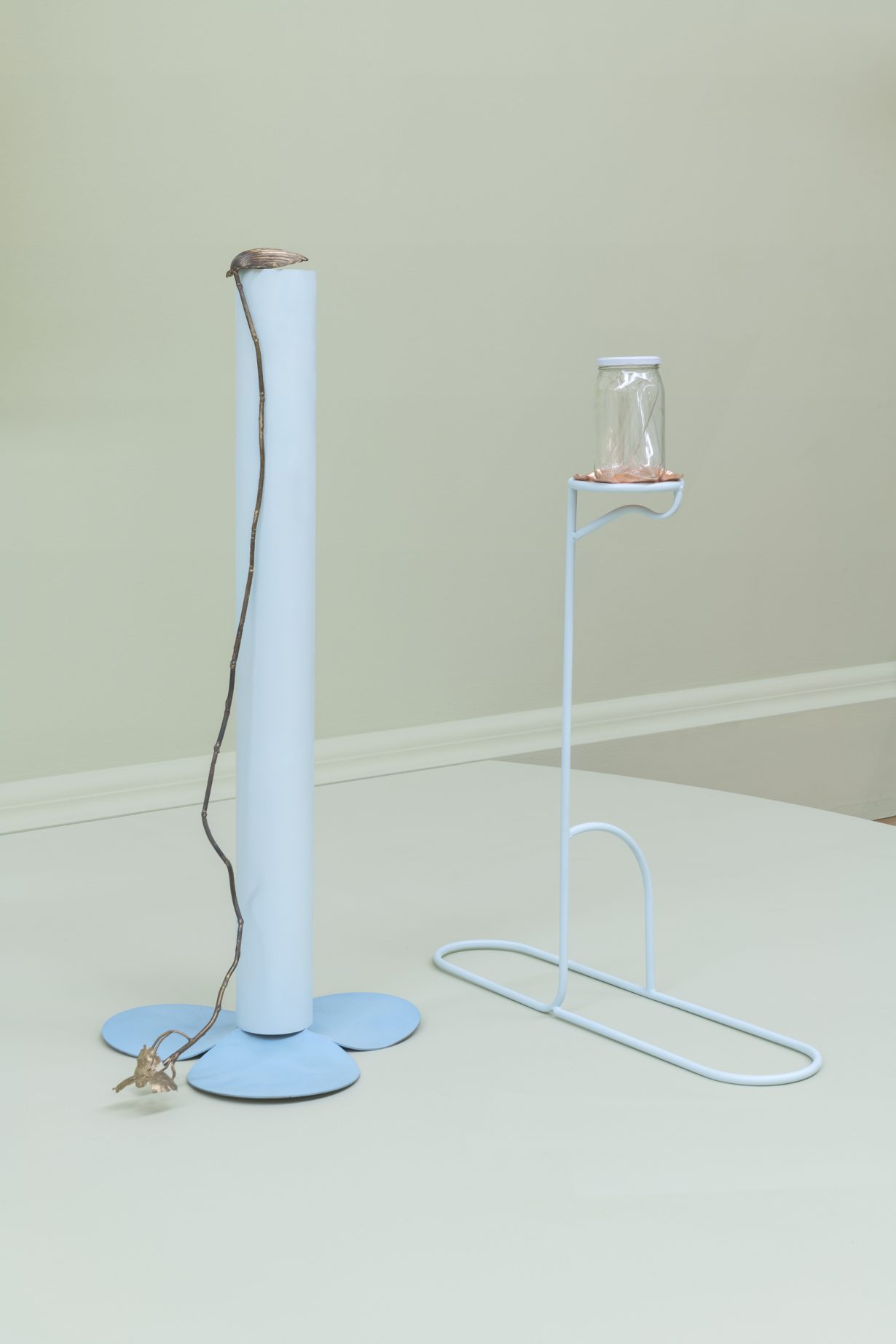
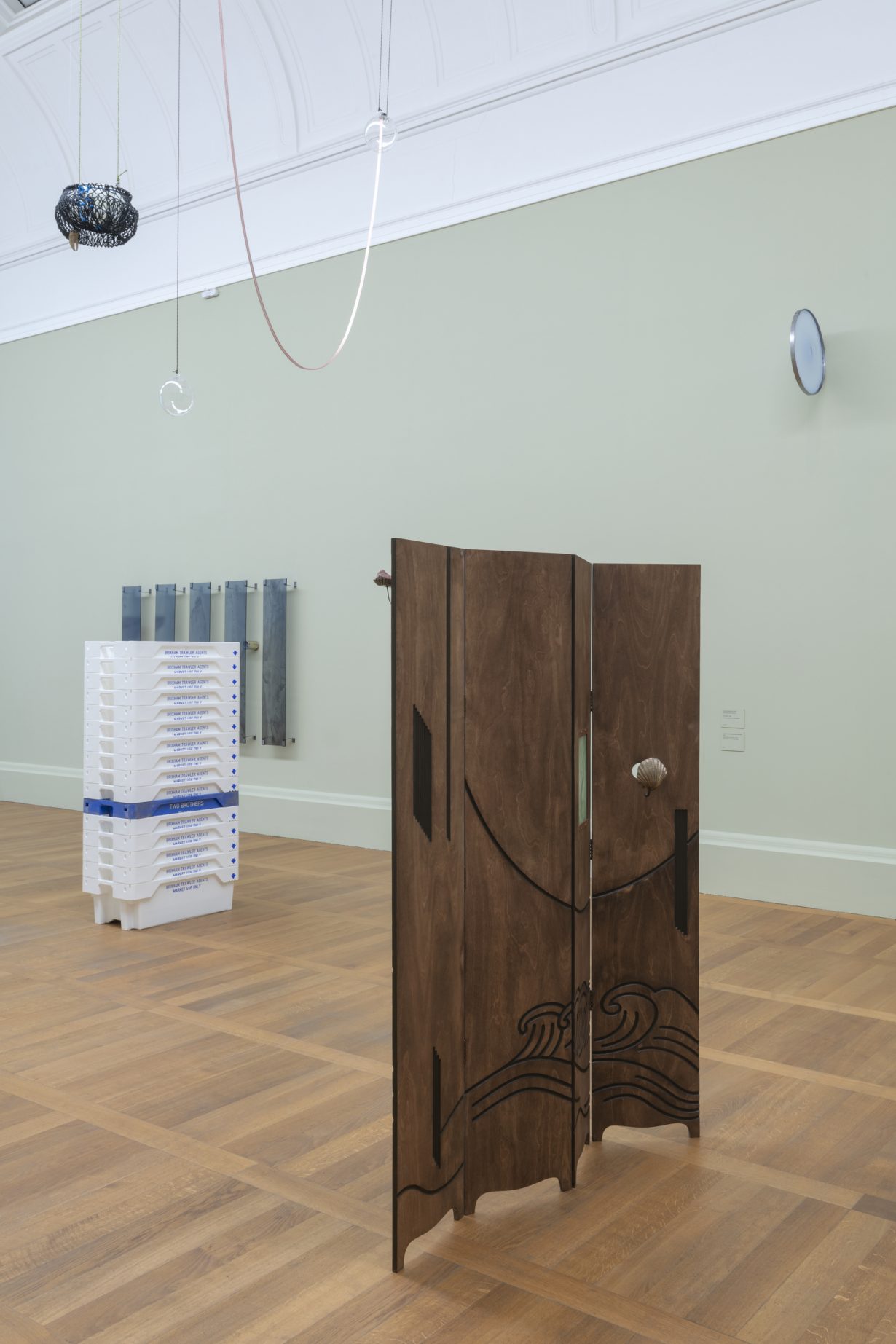
A similar concern with the invisible cycles of production and trade underpins Huang’s film, the eponymously titled See, See, Sea, which documents fishing off the coast of Devonshire. Through a series of long takes and closeups, the film zooms in on moments of intimacy between the world of the sea and local fisherfolk during what seem like arduous and slow processes of production. In the film, masterful hands grip slippery fish, weave willow baskets and collect scallops from the seabed. It becomes apparent that such intimacy with the marine environment and its products will be lost on a city gourmet’s dinner table, a culture implied in the classy tablecloth, spotless dinner plate and bite-sized seafood that make up Supper.
Perhaps because consumers’ alienation from food and the disappearance of traditional fisheries are familiar topics in public discourse, See, See, Sea at times feels like a journey down a well-trodden path. While its brochure and wall texts do contextualise the exhibition within the artist’s research and practice, they ultimately allow little space for contemplating anything thornier than ‘our relationship to food consumption’ and ‘another way of life’. However, much like the found objects that lead visitors’ minds to unseen grime and sweat, Huang’s artworks themselves inspire adventures beyond the exhibition’s thematic focus. Visitors drift towards the gallery’s periphery, guided by objects positioned in obscured corners and margins: irregularly shaped glass bubbles atop the projection wall, tiny bronze figs lying under Between Sunrises and Sunsets (2023) and a small wind chime dangling far above anyone’s eye level (Lantern). As a space opens up for wandering minds and imaginative interpretation, the noises of boat motors from the film morph into sporadic bursts of rat-a-tat that might be easily mistaken for a machine gun’s rattle. For those who choose to tune in, these nervous noises hover above the gallery like a vague shadow of the violence associated with maritime trade and migration, both historical and contemporary.
See, See, Sea at Tate Britain, London, through 5 January

